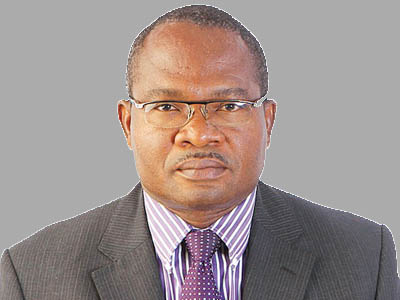
The Policy and Legal Advocacy Centre (PLAC) has renewed calls for constitutional amendments to guarantee reserved seats for women in Nigeria’s legislature, describing gender equity as central to the country’s democratic future.
Speaking at a high-level policy dialogue in Abuja on Thursday, the executive director of PLAC, Clement Nwankwo criticised the persistent underrepresentation of women in Nigeria’s political leadership. He noted that only three out of 109 senators currently serving in the National Assembly are women, a situation he described as unacceptable in a modern democracy.
“This is not just a statistic. It is a national shame,” Nwankwo said. “It speaks to the systemic exclusion of half of Nigeria’s population from critical decision-making processes. That must change.”
To address the disparity, Nwankwo highlighted a bill before the National Assembly that proposes the creation of additional legislative seats exclusively for women. The bill seeks to allocate one special seat per senatorial district, with up to three per state in total. The reserved seats would exist under a sunset clause for four electoral cycles, 16 years, after which they would be subject to review.
“This isn’t about removing men from office,” Nwankwo clarified. “It is about correcting a historical imbalance and creating an environment where women’s voices are equally represented.”
He pushed back against arguments that such a reform would unnecessarily increase the cost of governance, saying the real burden on Nigeria’s democracy is the cost of exclusion.
“Those who raise concerns about cost ignore the bigger picture. The real crisis is democratic inequality. We are operating a system that shuts out women and that undermines national development,” he said.
Nwankwo also pointed to the many cultural and institutional barriers women face in contesting for office. These range from patriarchal party structures and financial disadvantage to discriminatory public attitudes and widespread gender-based violence in politics.
“There are legislators who make light of this issue with statements like, ‘Do you want my wife to leave the house?’ That kind of thinking is part of the problem,” he said.
Drawing from successful global examples, he referenced Rwanda, Senegal, Uganda and Tanzania, where affirmative action policies have dramatically increased women’s political representation and contributed to more inclusive governance.
“In some of these countries, the parliamentary committees on women’s affairs are led by women. In Nigeria, that same committee is sometimes chaired by a man in his seventies,” he added.
He called on civil society, the media and Nigeria’s international development partners to actively support the bill and help raise public awareness about its importance.
“When women are in the room, the tone of governance changes for the better,” Nwankwo said. “This is about equity, yes, but it is also about justice, accountability and building a democracy that works for everyone.”
Other reform proposals discussed at the forum included preventing elected officials from being sworn in until legal disputes are resolved, reducing excessive election litigation and strengthening the constitutional authority of Supreme Court rulings on governance.
The dialogue also explored restoring local government autonomy through inclusive structures that promote gender balance.
Attendees included representatives from the National Assembly, the Deputy Speaker’s Office and the European Union Delegation to Nigeria. Also present were the managing director of Voice of Nigeria (VON), Mallam Ali Mohammed; Director-general of VON, Mallam Jibrin Ndace, members of the Nigerian Guild of Editors (NGE), among others.

